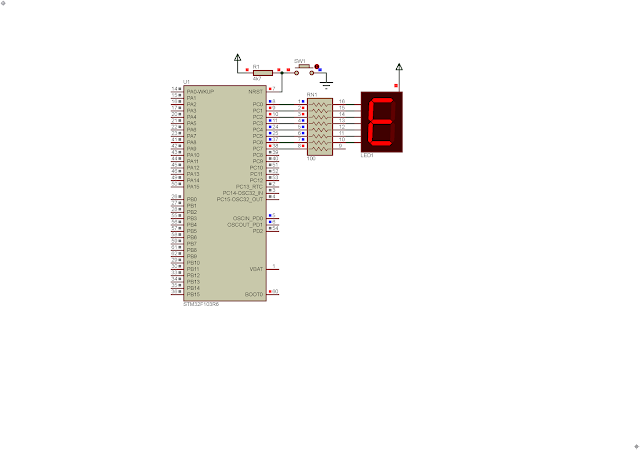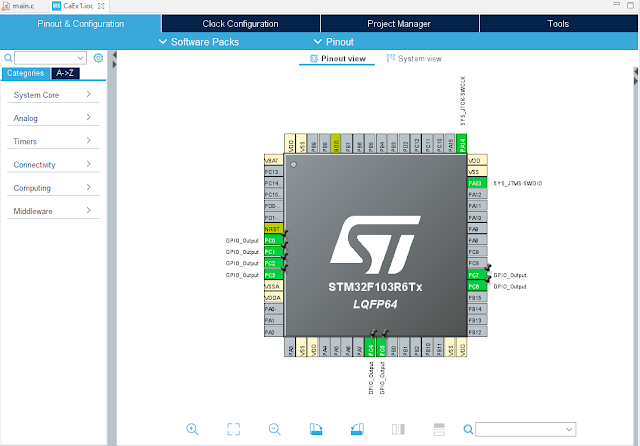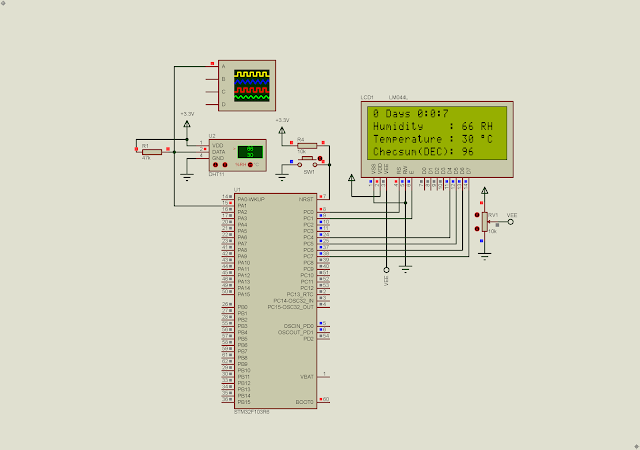In this programming example, I will use a single common anode 7-Segment display with an STM32F103R6 controller to show a free running numbers range between 0 and F. I use the HAL_GPIO_WritePin function to process the output data.
 |
Running Program in Proteus VSM |
I use Pinout and Configuration to configure the output pins.
 |
STM32CubeIDE IOC |
The output pins are between PC0 and PC7.
Click here to download its source file. For other similar posts please check,
- Getting Started With STM32F103C8T6 Module with STM32CubeIDE
- STM32F103C8T6 Blue Pill SysTick and Multiplexing Display Example
- STM32F103C8T6 Blue Pill Switch And Multiplexing Display Interface Using SysTick
- STM32F103C8T6 Blue Pill SysTick LED Blinking
- STM32F103R6 Shifts LEDs Using STM32CubeIDE




